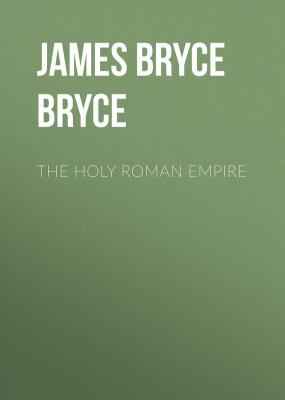The Holy Roman Empire. Viscount James Bryce
Читать онлайн.| Название | The Holy Roman Empire |
|---|---|
| Автор произведения | Viscount James Bryce |
| Жанр | Историческая литература |
| Серия | |
| Издательство | Историческая литература |
| Год выпуска | 0 |
| isbn |
138
St. Augustine, however, though he states the view (applying the passage to the Roman Empire) which was generally received in the Middle Ages, is careful not to commit himself positively to it.
139
140
Compare with this the words which Pope Hadrian I. had used some twenty-three years before, of Charles as representative of Constantine: 'Et sicut temporibus Beati Sylvestri, Romani pontificis, a sanctæ recordationis piissimo Constantino magno imperatore, per eius largitatem sancta Dei catholica et apostolica Romana ecclesia elevata atque exaltata est, et potestatem in his Hesperiæ partibus largiri dignatus est, ita et in his vestris felicissimis temporibus atque nostris, sancta Dei ecclesia, id est, beati Petri apostoli germinet atque exsultet, ut omnes gentes quæ hæc audierint edicere valeant, 'Domine salvum fac regem, et exaudi nos in die in qua invocaverimus te;' quia ecce novus Christianissimus Dei Constantinus imperator his temporibus surrexit, per quem omnia Deus sanctæ suæ ecclesiæ beati apostolorum principis Petri largiri dignatus est.' —
This letter is memorable as containing the first allusion, or what seems an allusion, to Constantine's Donation.
The phrase 'sancta Dei ecclesia, id est, B. Petri apostoli,' is worth noting.
141
The church in which the opening scene of Boccaccio's
142
So Kugler (Eastlake's ed. vol. i. p. 144), and so also Messrs. Crowe and Cavalcaselle, in their
143
Domini canes. Spotted because of their black-and-white raiment.
There is of course a great deal more detail in the picture, which it does not appear necessary to describe. St. Dominic is a conspicuous figure.
It is worth remarking that the Emperor, who is on the Pope's left hand, and so made slightly inferior to him while superior to every one else, holds in his hand, instead of the usual imperial globe, a death's head, typifying the transitory nature of his power.
